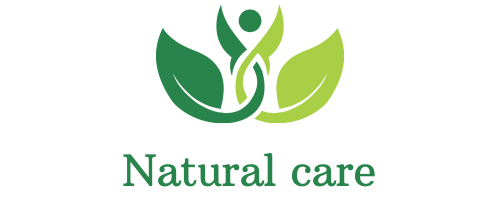healthcare administration jobs
The healthcare industry is booming, with many job openings across the United States. In 2023, healthcare jobs grew by 3.9%, much faster than other jobs. The U.S. Bureau of Labor Statistics said there were 70,000 new healthcare jobs in January 2024 alone.
More people need healthcare as the population ages and more providers are needed. The pandemic also led to burnout, making healthcare jobs even more sought after. These jobs are stable and rewarding, offering many opportunities in nursing, allied health, administration, and technical fields.
Table of Contents
The Growing Demand in Healthcare Industry
In 2022, the U.S. healthcare industry employed about 16.3 million people. The need for healthcare services is still growing. Jobs for medical and health services managers are expected to increase by 29% by 2033, adding 160,600 new positions.
This rise in demand is due to several reasons. The aging population and the growing complexity of healthcare are key factors.
Current Healthcare Employment Statistics
The healthcare industry is booming in the U.S. economy. The Bureau of Labor Statistics says jobs for medical and health services managers will grow faster than average. They will grow faster than other management jobs.
Impact of Demographic Changes
The aging of the baby-boom generation is a big reason for the growing need for healthcare. By 2030, 73 million people will be 65 or older. This will lead to more healthcare needs and a higher demand for providers and administrators.
Post-Pandemic Healthcare Job Market
The COVID-19 pandemic has changed the healthcare industry. It has caused burnout and staff shortages. But, it has also opened up new opportunities for healthcare professionals.
These opportunities include healthcare leadership roles and hospital administration careers. As the industry adjusts to the post-pandemic world, skilled leaders will be needed more than ever.
The healthcare system is getting more complex. Technological advancements and global health challenges are also playing a role. This means a diverse and skilled workforce is needed to meet the industry’s evolving needs.
Professionals with expertise in healthcare administration, data analytics, and care coordination will be in demand. The industry is changing, and these skills will be crucial.
Why Healthcare Careers Offer Stable Future
The healthcare industry is promising for those looking for stable and rewarding careers. As the population ages, healthcare needs grow, increasing the demand for skilled professionals. The U.S. Bureau of Labor Statistics predicts healthcare jobs will grow faster than most between 2022 and 2032.
Healthcare careers are stable because the industry doesn’t falter during economic downturns. Healthcare services are always needed, making jobs secure for those with the right skills. Plus, healthcare is less likely to be automated, which helps secure long-term jobs for professionals.
The aging population drives the need for healthcare, creating a stable job market. As people live longer, they need more medical services and treatments. This means more jobs for operations management and healthcare business administration experts who can manage healthcare systems well.
There’s also a big need for nurses as the current workforce ages. The National Council of State Boards of Nursing says nearly 900,000 nurses will retire by 2027. This creates many job openings for those interested in nursing and allied health.
Diversity and inclusion are key in healthcare, leading to better patient care and access. This opens doors for professionals from diverse backgrounds to make a difference and advance in this vital industry.
Nursing Professionals: Leading the Healthcare Workforce
Nurses are the heart of the healthcare world. They have been the most trusted healthcare workers for 22 years. A recent Gallup poll showed 82% of people think nurses provide excellent or good care. This is more than the 69% who feel the same about doctors.
The nursing field is not just respected; it’s also in high demand. Registered Nurses (RNs) are expected to grow by 6% from 2022 to 2032. Starting with an associate degree, RNs can move up to a Bachelor of Science in Nursing (BSN). This opens doors to many healthcare jobs.
Nurse Practitioner Opportunities
Nurse Practitioners (NPs) are especially sought after. They are ranked as the #1 Best Job of 2024 by U.S. News. NPs are expected to grow by 45% from 2022 to 2032. They can diagnose, treat patients, and even start their own practices in some places.
Advanced Practice Nursing Roles
There are also advanced nursing roles beyond RN and NP. Jobs like Nurse Anesthetists, Nurse Midwives, and Clinical Nurse Specialists offer more responsibilities. These roles are perfect for nurses who want to grow in their careers and take on leadership roles.
“Nursing is the nation’s largest healthcare profession, with nearly 5.2 million registered nurses (RNs) nationwide. 89% of all licensed RNs are employed in nursing.”
Allied Health Professions in High Demand

Allied health professionals are key in the healthcare world. They support quality patient care with their advanced skills. As the healthcare industry grows, so does the need for these roles.
Jobs like Physical Therapists, Respiratory Therapists, and Radiation Therapists are growing fast. Physical Therapists, with a Doctor of Physical Therapy degree, see a 15% job growth rate. Respiratory Therapists, needing a two-year program, have a 13% job growth. Radiation Therapists, with a two-year or four-year degree, see average job growth.
These roles offer direct patient care and are vital to healthcare. With more people needing healthcare, the demand for skilled professionals is high. This means healthcare management opportunities and medical facility administration roles are plentiful for those with the right skills.
| Allied Health Profession | Anticipated Growth | Average Hourly Rate | Average Annual Salary |
|---|---|---|---|
| Physician Assistant | 28% | $87.15 | $181,272 |
| Occupational Therapist Assistant | 21% | $42.15 | $87,672 |
| Physical Therapy Assistant | 19% | $34.85 | $72,488 |
| Speech-Language Pathologist | 18% | $51.83 | $107,806 |
| Registered Ultrasound Technologist | 15% | $47.05 | $97,864 |
| Medical Assistant | 15% | $23.74 | $49,379 |
| Physical Therapist | 14% | $52.42 | $109,034 |
| Respiratory Therapist | 13% | $41.16 | $85,613 |
| Occupational Therapist | 11% | $50.75 | $105,560 |
| Audiologist | 11% | N/A | N/A |
These numbers highlight the demand and pay for allied health jobs. They’re a great career choice for those in healthcare. With the right education and skills, you can find rewarding healthcare management opportunities and medical facility administration roles.
Healthcare Administration Jobs: Management Opportunities
The healthcare industry is growing fast, and so is the need for skilled professionals in healthcare administration. These roles are key to making sure healthcare facilities run smoothly and provide top-notch care.
Healthcare administration jobs cover a lot of ground. They include managing hospital departments, nursing homes, and health information systems. These jobs need a mix of business skills and deep knowledge of healthcare, making them very popular.
Medical Facility Director Roles
Healthcare administrators, also known as medical and health services managers, lead the way in healthcare facilities. The Bureau of Labor Statistics says these jobs will grow by 28% by 2032, much faster than most jobs.
Healthcare Operations Management
Healthcare operations management deals with the day-to-day tasks like budgeting, staffing, and planning. These roles need a strong background in finance and project management. Healthcare operations managers make a median salary of $110,680, making it a rewarding career.
Clinical Administration Positions
Clinical administration roles, like health information managers and medical records specialists, handle patient data and medical coding. They ensure patient information is accurate and secure. These jobs have median salaries of $48,780 and $62,990, respectively.
| Healthcare Administration Job Title | Median Annual Salary (as of 2023) |
|---|---|
| Medical and Health Services Manager | $110,680 |
| Healthcare Financial Manager | $156,100 |
| Health Information Manager | $64,210 |
| Healthcare Consultant | $85,790 |
| Healthcare Administrator | $78,240 |
| Hospital CEO | $160,040 |
| Medical Director | $240,520 |
The field of healthcare administration offers many healthcare leadership roles. These roles combine business skills with healthcare knowledge. Whether you’re interested in managing a facility, overseeing operations, or focusing on clinical administration, there are plenty of opportunities in healthcare administration jobs.https://www.naturalpurecare.com/what-to-eat/
Technical Healthcare Careers
The healthcare industry has many technical careers that are key to patient care. These roles include operating advanced imaging tech and managing digital health records. They are crucial in today’s healthcare settings.
Radiologic Technologists use imaging equipment like X-rays and MRIs. They take detailed images to help doctors diagnose and treat patients. With a 6% job growth expected by 2032, they are in high demand.
Health Information Technicians handle the digital side of healthcare. They make sure patient medical records are accurate and secure. As more healthcare goes digital, their skills are needed more.
Clinical Laboratory Technicians and Technologists do important tests like analyzing blood and tissue samples. They help doctors make treatment plans. This field is expected to grow 5% by 2032, showing the need for accurate testing.
These technical careers are rewarding for those who love science and technology. They help ensure patients get the best care by supporting accurate diagnoses and treatment plans. Healthcare technology careers and medical technology jobs are essential in today’s healthcare.
Support Services in Healthcare Settings
The healthcare industry needs more than just doctors and nurses. It relies on many support services to work well and care for patients. Jobs like clinical laboratory and patient care support are stable and rewarding. They are great for those interested in healthcare support jobs and medical office management.
Clinical Laboratory Positions
Clinical lab workers are key in healthcare. Phlebotomists, who take blood samples, see an 8% job growth by 2032. Clinical Lab Technicians, who test samples, need an associate degree and have good job prospects.
Medical Assistant Opportunities
Medical Assistants are growing fast, with a 14% job growth by 2032. They do many tasks, from scheduling to helping with procedures. They usually need a certificate or two-year degree.
Patient Care Support Roles
Patient Services Representatives start with a high school diploma and learn on the job. Medical Executive Assistants and Healthcare Human Resources Assistants need a bachelor’s degree. These roles help healthcare run smoothly and improve patient care.
| Healthcare Support Role | Educational Requirement | Avg. Salary (2023) |
|---|---|---|
| Phlebotomist | Certificate or diploma | $37,380 |
| Clinical Lab Technician | Associate’s degree | $57,800 |
| Medical Assistant | Certificate or diploma | $36,930 |
| Patient Services Representative | High school diploma + on-the-job training | $35,770 |
| Medical Executive Assistant | Bachelor’s degree preferred | $60,920 |
| Healthcare HR Assistant | Bachelor’s degree | $46,290 |
These support roles are vital for healthcare’s smooth operation and patient care. With more demand, healthcare support jobs and medical office management offer stable and fulfilling careers.
Healthcare Technology and Digital Health Careers

The healthcare world is changing fast, thanks to new technologies. This change is making healthcare delivery better. It’s also creating a big need for people who know both healthcare and tech well.
Digital health jobs are all about using tech to help people. This includes telemedicine, managing health data, and more. These jobs need people who know health and tech, making them very popular.
Exploring Opportunities in Digital Health
Some top digital health jobs are:
- Telehealth Coordinator: Manages telemedicine programs for better patient care.
- Healthcare IT Specialist: Builds and keeps the tech needed for digital health.
- Clinical Informaticist: Helps health workers use tech better.
- Digital Health Analyst: Uses data to make smart health decisions.
These jobs need people who know health well and are good with tech. They also need a love for new ideas.
Navigating the Digital Health Job Market
The need for digital health jobs is growing. It’s key for those interested to keep up with new trends and jobs. Websites like LinkedIn, Indeed, and AngelList are great for finding telemedicine careers and other digital health jobs.
Also, talking to recruiters and going to networking events can help. These can give you insights and connections in the fast-changing job market.
| Key Considerations for Digital Health Careers | Helpful Resources for Staying Updated |
|---|---|
|
|
By staying informed, networking, and carefully looking at job options, healthcare pros can thrive in digital health. They can help change the healthcare world for the better.
Conclusion
The healthcare job market in 2024 is full of opportunities in different areas. You can find jobs in nursing, allied health, administration, and technical fields. These roles are growing fast, offering strong career paths.
When picking a healthcare career outlook, think about job stability, growth, and what you enjoy. It’s important to choose a path that fits your skills and interests.
Staying up-to-date with new skills and technology is crucial in healthcare. This field is not only rewarding but also secure. As healthcare job market trends change, there will be many chances for growth and making a difference.
Healthcare offers many paths, from direct patient care to leadership and technical roles. By matching your skills and interests with the industry’s needs, you can create a fulfilling career. You’ll help improve the lives of people and communities in the U.S.
FAQ
What is the current state of healthcare employment?
What is the projected growth in healthcare employment?
Why are healthcare careers considered stable?
What are the top in-demand healthcare professions?
What are the career opportunities in healthcare administration?
What technical healthcare careers are in demand?
What support roles are crucial in healthcare settings?
How is technology shaping the healthcare job market?
Source Links
- Top 10 Healthcare Careers in 2024 – https://www.laboure.edu/blog/top-10-health-careers-2024
- Top 10 In-Demand Healthcare Careers in 2024 – VISTA Staffing – https://www.vistastaff.com/top-in-demand-healthcare-careers-2024/
- 11 Highest Paying Healthcare Administration Jobs – https://potomac.edu/highest-paying-healthcare-administration-jobs/
- 4 Trends Driving the Need for Healthcare Administrators – https://www.waldenu.edu/online-masters-programs/master-of-healthcare-administration/resource/four-trends-driving-the-need-for-healthcare-administrators
- Healthcare Administration Careers and Salaries | UW Online Collaboratives – https://uwex.wisconsin.edu/stories-news/healthcare-administration-careers-and-salaries/
- Health care at a crossroads: Addressing workforce demand with innovation and inclusion – https://www.medicaleconomics.com/view/health-care-at-a-crossroads-addressing-workforce-demand-with-innovation-and-inclusion
- Why a Career in Federal Healthcare Administration Could be Right for You – https://www.linkedin.com/pulse/why-career-federal-healthcare-administration-0m43c
- Nursing Is The Most Trusted Healthcare Profession. Where Nurses Can Lead In 2024 – NurseJournal.org – https://nursejournal.org/articles/nurses-most-trusted-healthcare-professional/
- 120 Healthcare and Nursing Statistics for 2024 | NU – https://www.nu.edu/blog/healthcare-nursing-statistics/
- Nursing Shortage Fact Sheet – https://www.aacnnursing.org/news-data/fact-sheets/nursing-shortage
- 8 Travel Allied Healthcare Jobs in Demand | TRS Healthcare – https://trshealthcare.com/blog/allied/jobs-specialties-high-demand/
- Top 10 Highest Paying Allied Health Specialties | Vivian Community Hub – https://www.vivian.com/community/allied-health/top-10-highest-paying-allied-health-specialties/
- The Fastest Growing Allied Health Careers in 2025 | Vivian Community Hub – https://www.vivian.com/community/allied-health/fastest-growing-allied-health-careers/
- Healthcare Administration Careers | BestColleges.com – https://www.bestcolleges.com/careers/healthcare/healthcare-administration/
- Exploring Health Administration Career Opportunities – https://westcoastuniversity.edu/blog/exploring-health-administration-career-opportunities
- What Can You Do With a Master’s Degree in Healthcare Administration (MHA)? – https://mha.ucla.edu/articles/what-can-you-do-masters-degree-healthcare-administration-mha/
- Top Healthcare Administration Jobs You Can Pursue | MCPHS – https://www.mcphs.edu/admission-and-aid/blog/a-comprehensive-guide-to-careers-in-healthcare-administration
- What Kind of Career Opportunities are Available in Healthcare Administration? – https://www.concorde.edu/blog/what-kind-career-opportunities-are-available-healthcare-administration
- 8 Jobs Can You Get with a Healthcare Administration Degree – https://www.umassglobal.edu/news-and-events/blog/what-jobs-can-you-get-with-a-healthcare-administration-degree
- Top 9 Entry-Level Healthcare Administration Jobs – https://nurse.org/healthcare/entry-level-healthcare-administration-jobs/
- So You Want to Work in Digital Health… — Halle Tecco – https://www.halletecco.com/blog/digital-health-jobs
- Why a Career in Federal Healthcare Administration Could be Right for You – https://www.ache.org/blog/2024/why-a-career-in-federal-healthcare-administration-could-be-right-for-you
- 5 Careers in Healthcare Administration – Northeastern University – https://online.northeastern.edu/resources/healthcare-administration-careers/
- The Role of a Healthcare Administrator in Today’s Healthcare System | NCC – https://www.northwestcareercollege.edu/blog/the-role-of-a-healthcare-administrator-in-todays-healthcare-system/
- Why Healthcare Administrators Should Learn Project Management Skills – https://www.allalliedhealthschools.com/blog/developing-project-management-skills-for-future-healthcare-administrators/
- Hospital Administrator – Edmates – https://www.edmates.com/career-guide/hospital-administrator/







